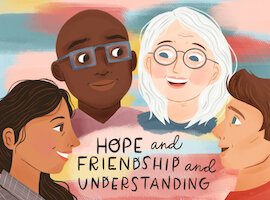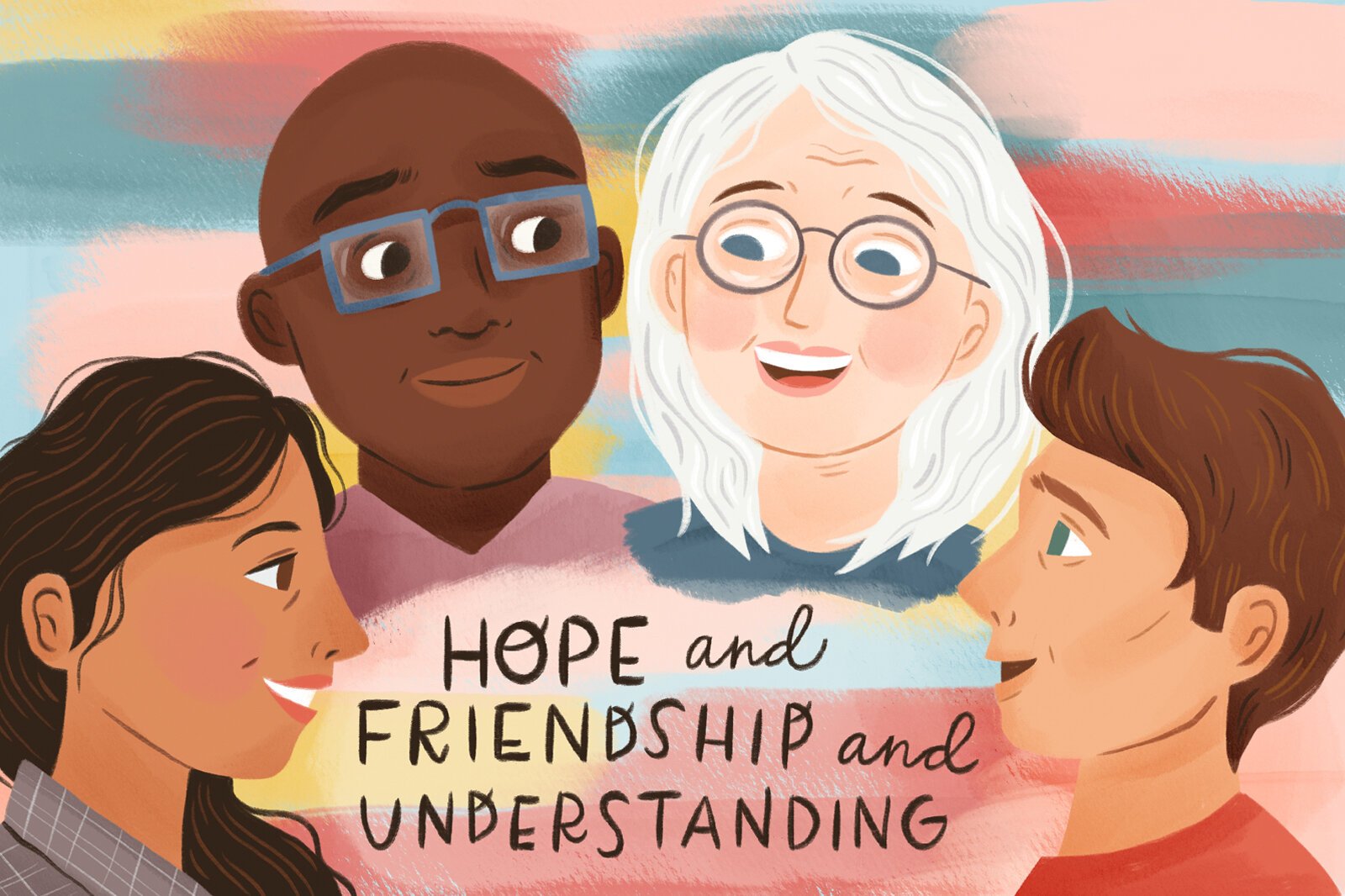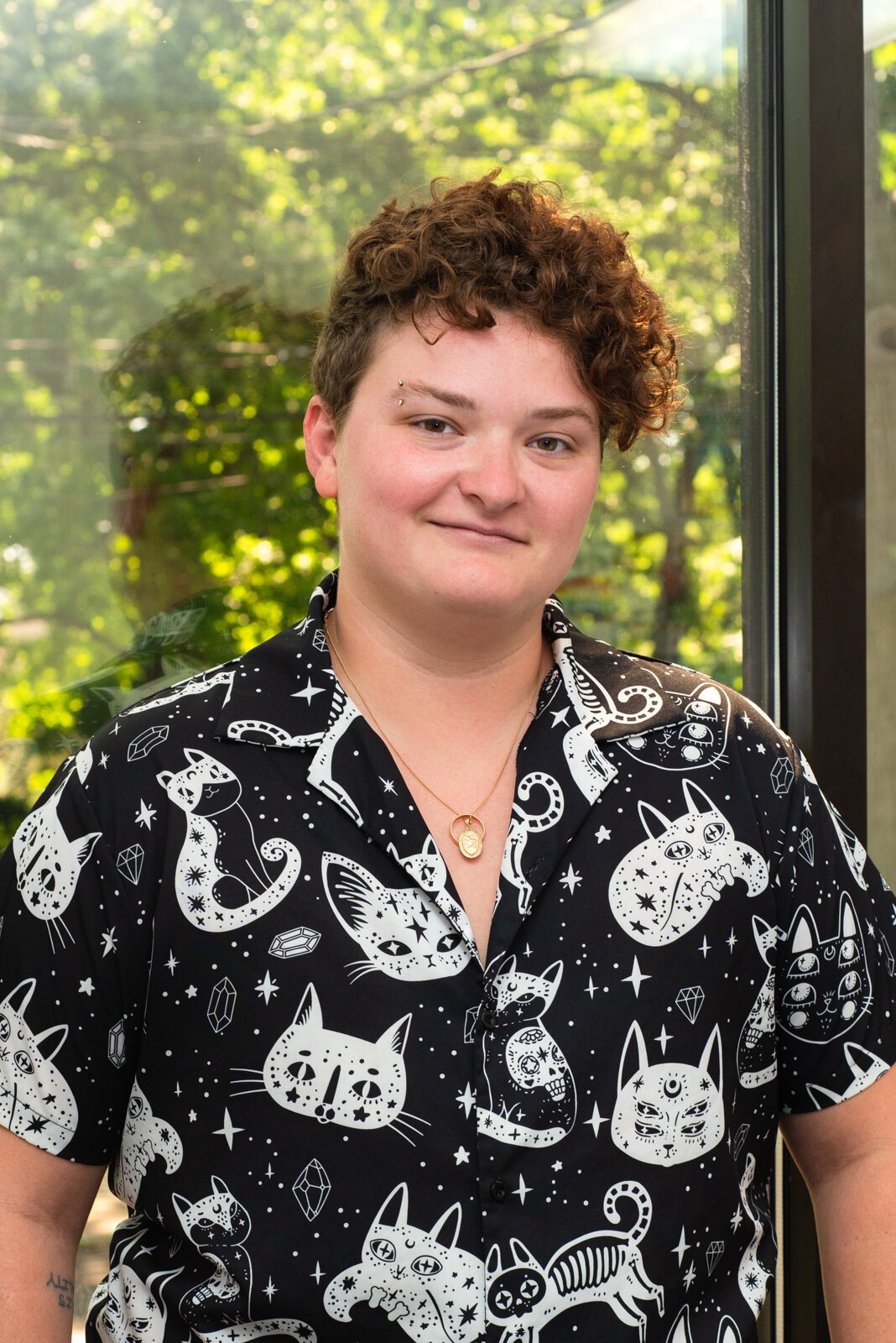This story is part of the Mental Wellness Project, a solutions-oriented journalism initiative covering regional mental health issues, by the Southwest Michigan Journalism Collaborative. SWMJC is a group of 13 regional organizations, including Southwest Michigan’s Second Wave, dedicated to strengthening local journalism. For more info visit swmichjournalism.com.
Para leer este articulo en español dale click aqui.
What can be better than a good friend? A good friend who understands the journey you are on because they have walked it, too.
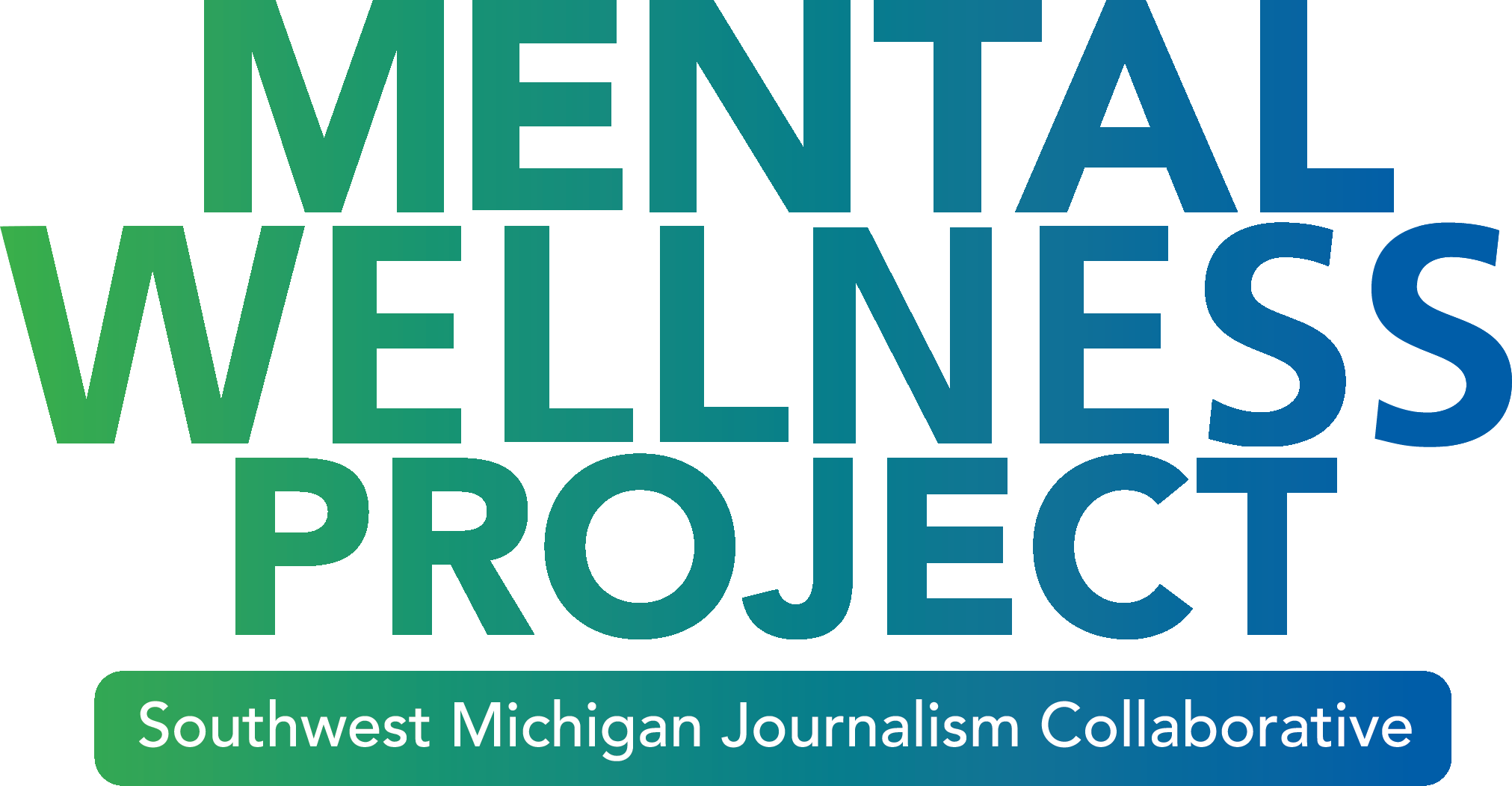
It’s called peer support.
Peer support is a concept that began to develop in the 1970s when many state hospitals were closed and mental health care consumers were suddenly left without the care they needed. Patients coping with depression, suicidal ideation, bipolar disorder, and other mental health conditions, were left on their own. These consumers then sought help from each other, forming their own support groups and supportive relationships.
It didn’t take long for people to find that talking to each other — to peers who had similar life experiences — could be profoundly helpful to their recovery. Many felt that the support they received from peers, in fact, was a kinder and gentler approach between equals than what they had received from professional clinicians.
Recovery with the help of a recovery coach
Recovery Institute of Southwest Michigan, Inc., at 1020 South Westnedge in Kalamazoo, is run entirely by peers. The nonprofit was established in 2006 on the peer support concept. The 16 staff members, with the exception of the executive director, Shawn Harris, have all traveled the challenging path of recovery with various mental health and/or substance abuse issues.
Storm Hunter, 27, director of operations at the Recovery Institute, readily shares the mental health struggles that brought them to the position.
“I’m trans, but it wasn’t until I was in college that I really understood why I never seemed to fit in,” Hunter says. “I had been struggling with depression, anxiety, suicidal ideation, and drug-seeking behavior since I was 10. I had a severe chemical imbalance in my brain, and once that was treated, my issues were resolved, but it took until 2017 to get there. I was too tall, too loud, too smart. People didn’t know what to do with me — I didn’t know what to do with me!”
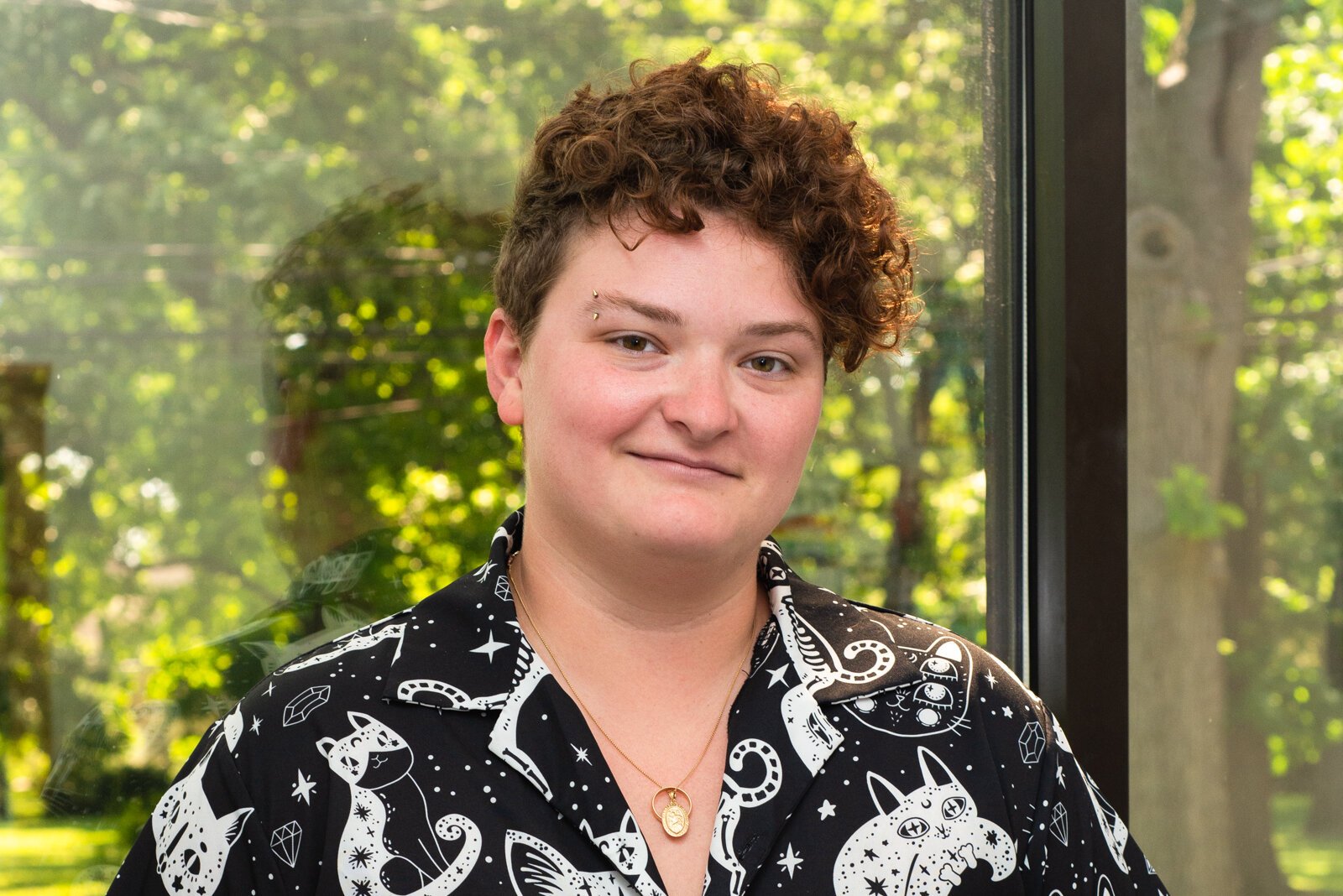
It wasn’t until Hunter had made a second attempt at suicide that a dream of their grandmother, chiding them to ‘get their sh— together,’ that Hunter had their turning point.
“I called my mom for help,” Hunter says. “I got therapy and I took supplements and I finally felt like a person. I’m living proof that anyone with these kinds of issues can be OK.”
Bringing that level of life experience to their work, Hunter is a strong believer in the peer-support concept. The Recovery Institute offers groups, classes, one-on-one meetings, and social outings. Meetings are both in-person and online.
“We are different than the 12-step programs of Alcoholics Anonymous and Narcotics Anonymous,” they say. “Our focus is more on whole-body health and without the higher power concept of AA and NA.”
Recovery Institute uses a four-point program, Hunter says:
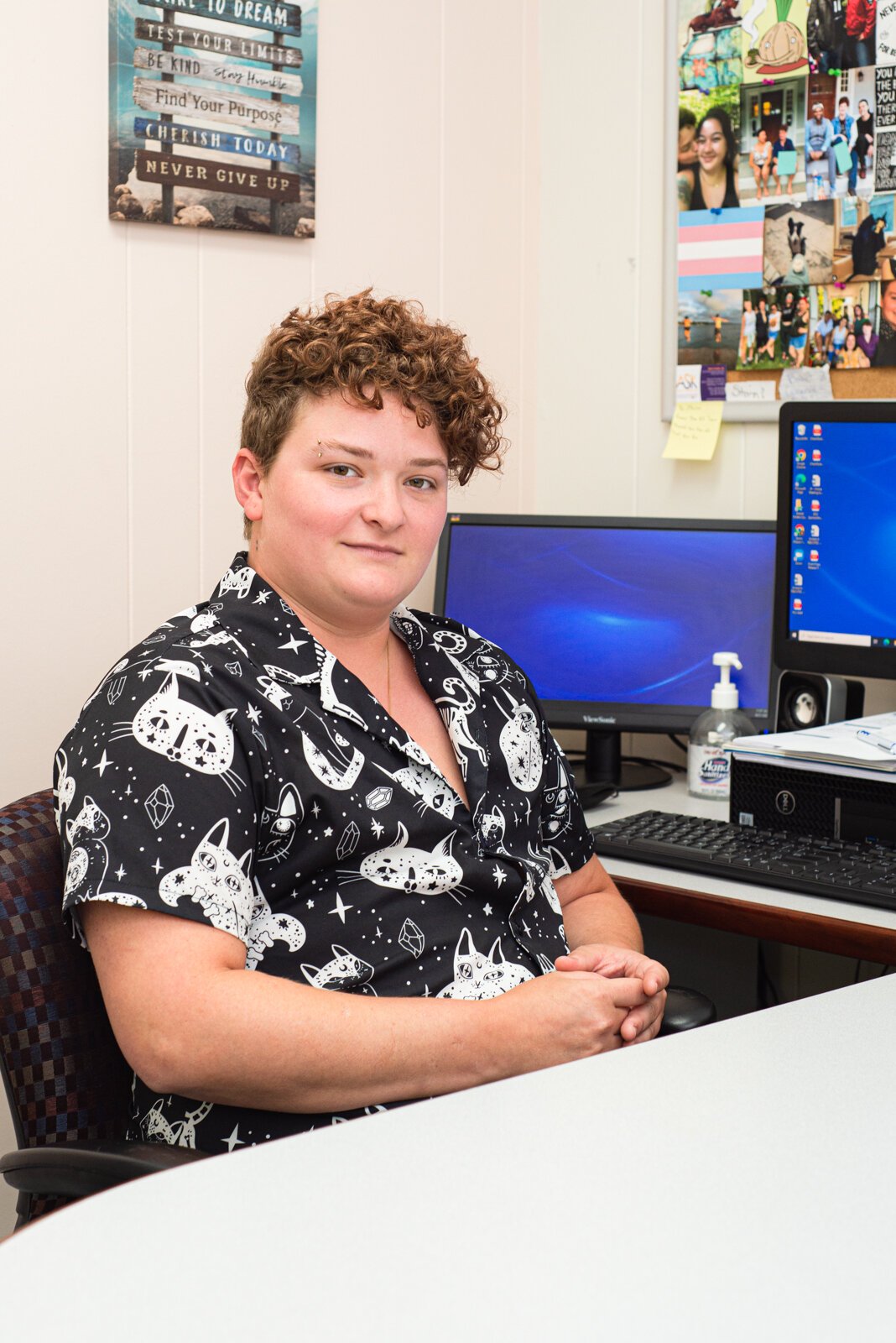
Not all gatherings are directly associated with addictive behavior or mental health issues. Workshops and meetings can include arts and crafts, music, writing, games, excursions, movies with popcorn, or just socializing while grilling hot dogs and sipping sodas.
“What we do here is all-encompassing,” Hunter says. “Socialization can be an important part of recovery, too.”
As Hunter did, members sometimes become staff, having reached a level of recovery when they can help others, even as they continue the recovery process themselves.
“You must have lived in recovery for at least a year to become a staff member,” Hunter says. “My first position here was as youth support. Training takes a week — 40 hours. The second week, you take a test for certification. And there is ancillary training, as well. After that, we have random drug testing of staff. No one is fired if they fail a test; that’s not our purpose. We embrace recovery. We work with that staff member, too, just as we would with anyone else, toward recovery.”
Realizing that many of those who need help may not come knocking at the Recovery Institute door, staff frequently participate in community outreach. While accepting referrals from organizations such as Integrated Services of Kalamazoo, a community mental health service provider, and Southwest Michigan Behavioral Health, Recovery Institute staff also visit homeless encampments and hospitals to encourage people to embrace their services.
“People needing help can be skittish,” Hunter acknowledges. “Our work is not only to get them engaged, but to keep them coming back.”
Another outreach program puts Recovery Institute staff at the Kalamazoo Public Library, downtown Kalamazoo. With an understanding between the two organizations, staff members regularly gather at the library to meet with anyone coming off the street and seeking help.
“It’s a place where homeless people often come to get indoors for a while,” Hunter says. “We talk to people and help to connect them to resources.”
Other outreach locations include the Ministry with Community, the Kalamazoo State Psychiatric Hospital, circuit and district court rooms, and others. The Recovery Institute currently partners with 26 area agencies.
During 2020, a year that differed from most due to the COVID-19 pandemic, nevertheless approximately 1,800 individuals were served through groups and 1,400 individuals were served in the community. When in-person meetings weren’t possible, online meetings became a substitute.
If there is one downfall to the work of peer support, Hunter says — and they insist there really is only one — it is that reaching out to others who are experiencing similar life experiences can sometimes trigger one’s own struggles. It’s called secondary trauma.
“The work really does take a lot of one’s emotional capacity,” Hunter says. “But that’s when we help each other, or just take a break. We also have regular staff appreciation events.”
Average staff tenure is 4 years, but Hunter says they see a growing number who have remained in the work for far longer.
“Something we missed out on during COVID was our annual festival,” Hunter says. “But we are bringing it back this year on Saturday, September 10th, from 11 a.m. to 4 p.m. And it’s completely free, even the food!”
The 8th Annual Wellness & Recovery Festival will take place at the Mayors Riverfront Park, next to Growlers Stadium. The festival is a celebration of mental health and freedom from addiction, and it will feature local resource booths, live music, games, and various family-oriented activities.
“It’s by peers, for peers,” Hunter says. “The festival showcases different organizations and systems that help with recovery, such as Recovery Institute, the YWCA, Gryphon Place, ASK—last year some 70 organizations participated and had booths. We are expecting to add yoga classes this year, a bike repair booth, face painting, a kids’ corner with games, anything and everything to do with recovery and general wellness. And did I say it’s free?”
Integrating recovery services for better outreach
While there are a growing number of agencies and organizations using peer support, another top player in the arena is Integrated Services of Kalamazoo, or ISK.
“Since October 2017, we have worked with approximately 3,200 people to provide recovery coaching,” says Teresa Moser, program manager of 24-hour services at ISK. Seventy percent are referred to us from hospitals, 15% from other community agencies or are walk-ins. From those, 90% agree to be connected to treatment and/or recovery support programs.”
ISK has been delivering quality programs for individuals and families for 30 years. They partner and connect people to resources that help with mental health issues, intellectual and developmental disabilities, and substance abuse disorders. Peer support in the form of recovery coaches is an essential part of that care.
“We began using peer support when we saw a gap in the help that police and medical emergency staff could provide to individuals during the opioid epidemic beginning around 2017,” Moser says. “ISK recovery coaches go out 24 hours a day, middle of the night, if needed, to help people who might otherwise fall through the cracks.”
Chris Dale, 60, is a full-time recovery coach at ISK. He is one of seven peers, although the only one currently working full time and part of the peer support program since its inception in 2017.
“I meet people where they are, wherever they are,” he says. “I catch them at that moment when they maybe have hit their bottom and are ready to embrace recovery. No one does recovery alone. For me, it’s a matter of paying it forward.”
Dale tells a story of his own recovery after a long struggle with alcoholism, drug use, and the mental health issues that so often go hand-in-hand with that level of substance abuse.
“I struggled most of my adult life,” he says. “I lost everything, including my marriage, and I got a string of DUIs. NA and AA alone weren’t always enough for me. My recovery began from a combination of absolute desperation and necessity. I’ve been 15 years sober now.”
“Chris is amazing,” Moser adds. “He connects with people in a way that none of the clinicians can. Too many times people sit in jail, over and over again, and they don’t get any help, but Chris will go to the jail and make a connection. He will know how to reach them intuitively — that’s what comes from that lived experience. The police and first responders sing our praises. That’s been an unintended positive for this — the way Chris and our other recovery coaches interact with people has reduced the stigma of people in need of help.
Seeing them this way makes them more human. It makes change more possible.”
Addiction is lifelong, Dale says, and while he helps others, he strengthens his own continued recovery.
“This work keeps me grounded,” he says. “Helping others through hurdles helps me, too. It’s really rewarding to see others get their lives back. All anyone needs is a willingness to change. Change is possible for everyone; I’m an example of that. Everyone’s journey is different. Some get clean first try, others have multiple relapses. We don’t give up on anyone.”
Confirmation of results nationwide
In nationwide studies comparing clinical support to peer support, peer support provides equal to better results among participants. Mental Health America (MHA) found in a 2018 study that “both quantitative and qualitative evidence indicate that peer support lowers the overall cost of mental health services by reducing re-hospitalization rates and days spent in inpatient services, increasing the use of outpatient services. Peer support improves quality of life, increases and improves engagement with services, and increases whole health and self-management.”
The MHA study showed that peer support reduced symptoms of depression while instilling significantly higher levels of confidence and self-empowerment. Peer support led to improved relationships with providers and social supports, reduced relapse rates, and increased retention in treatment.
While peer support doesn’t replace the roles of therapists, social workers or case managers, recovery coaches provide a complement to those providers by modeling recovery and offering hope.
To connect with a recovery coach at ISK, call 269.373.6000 or visit their office, Monday through Friday, 8 a.m. to 5 p.m., at 610 South Burdick in Kalamazoo.
To contact Recovery Institute, call 269.343.6725, Monday through Friday, 8:30 a.m. to 4:30 p.m., or visit their office at 1020 South Westnedge in Kalamazoo.

